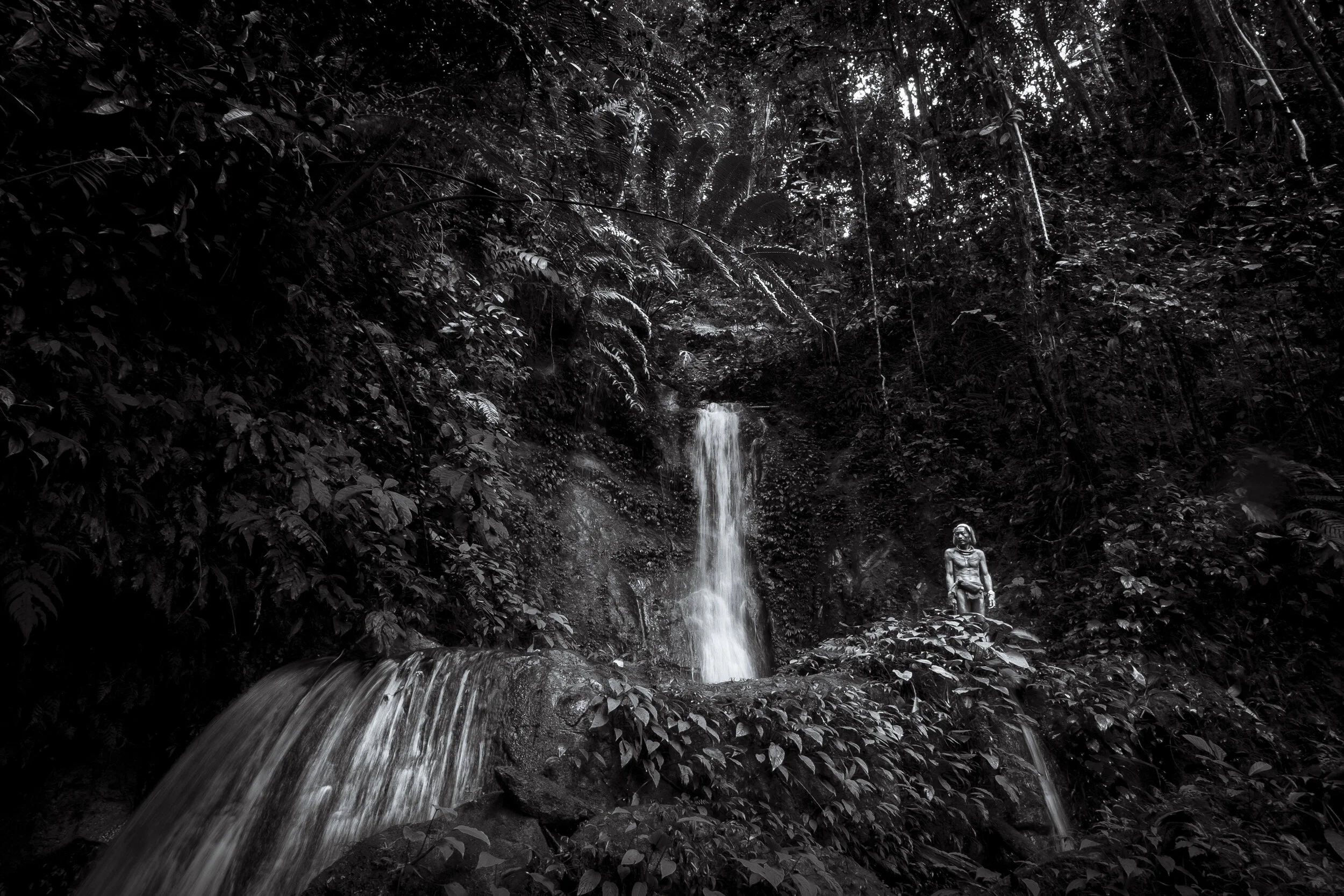
Mentawai tribesman and Sikerei (Shaman) Aman Masit Dere oversees his lands amid the tropical rainforest deep in the Sarereiket regions of Siberut Island.

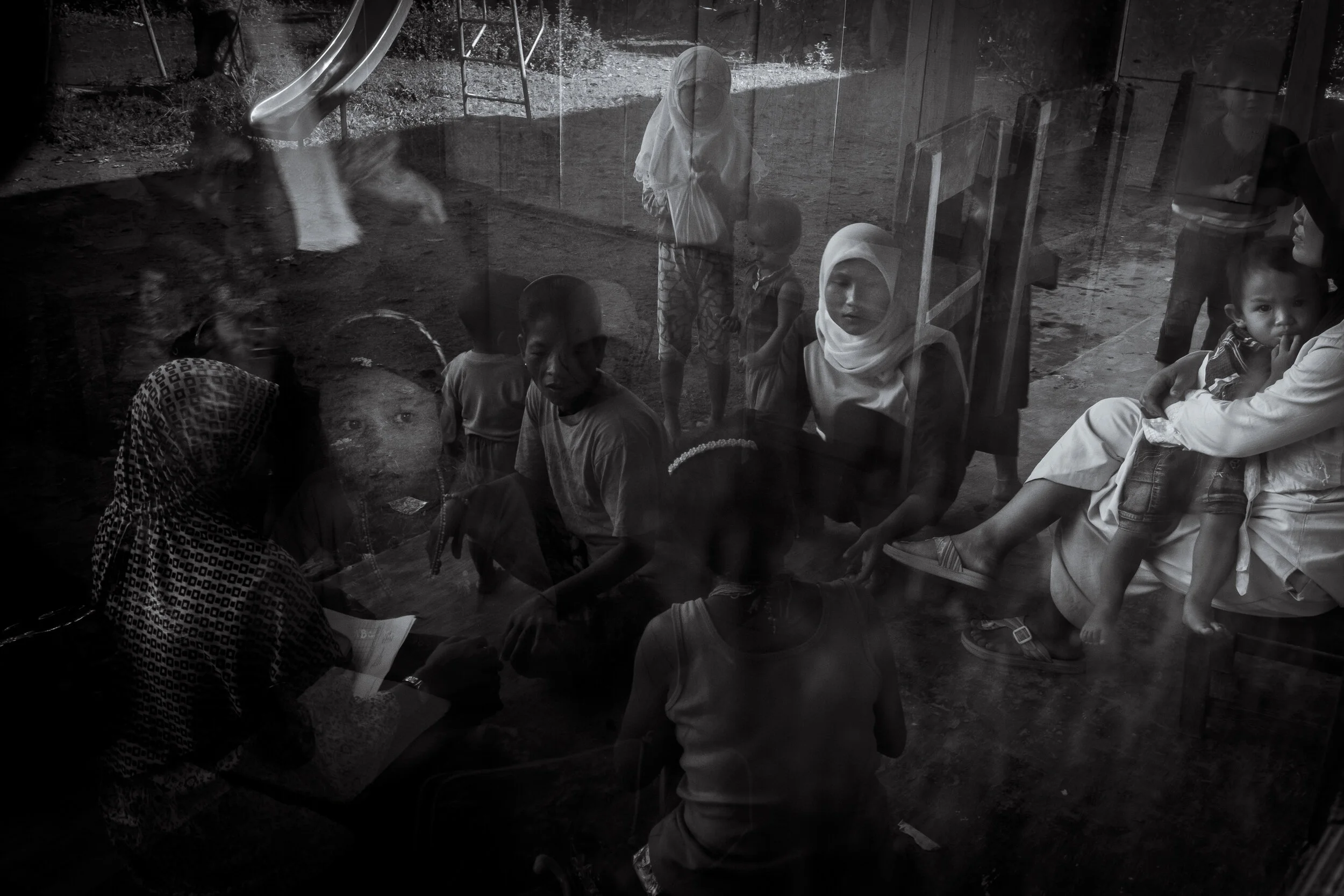
Masit Dere's daughter Ukan (6) stares through the window at the Islamic government school she attends with her brother Pandin in Matatonan. Her parents receive financial benefits for sending the two children to school and it is illegal for children to not attend. The school she attends is run with military precision, teaching reading, writing, arithmetic and religious studies, skills that, while of great benefit on mainland Indonesia, will offer only a slim chance of employment on the islands. This place is one of poverty, and has an unhealthy dependence on outsiders for support.
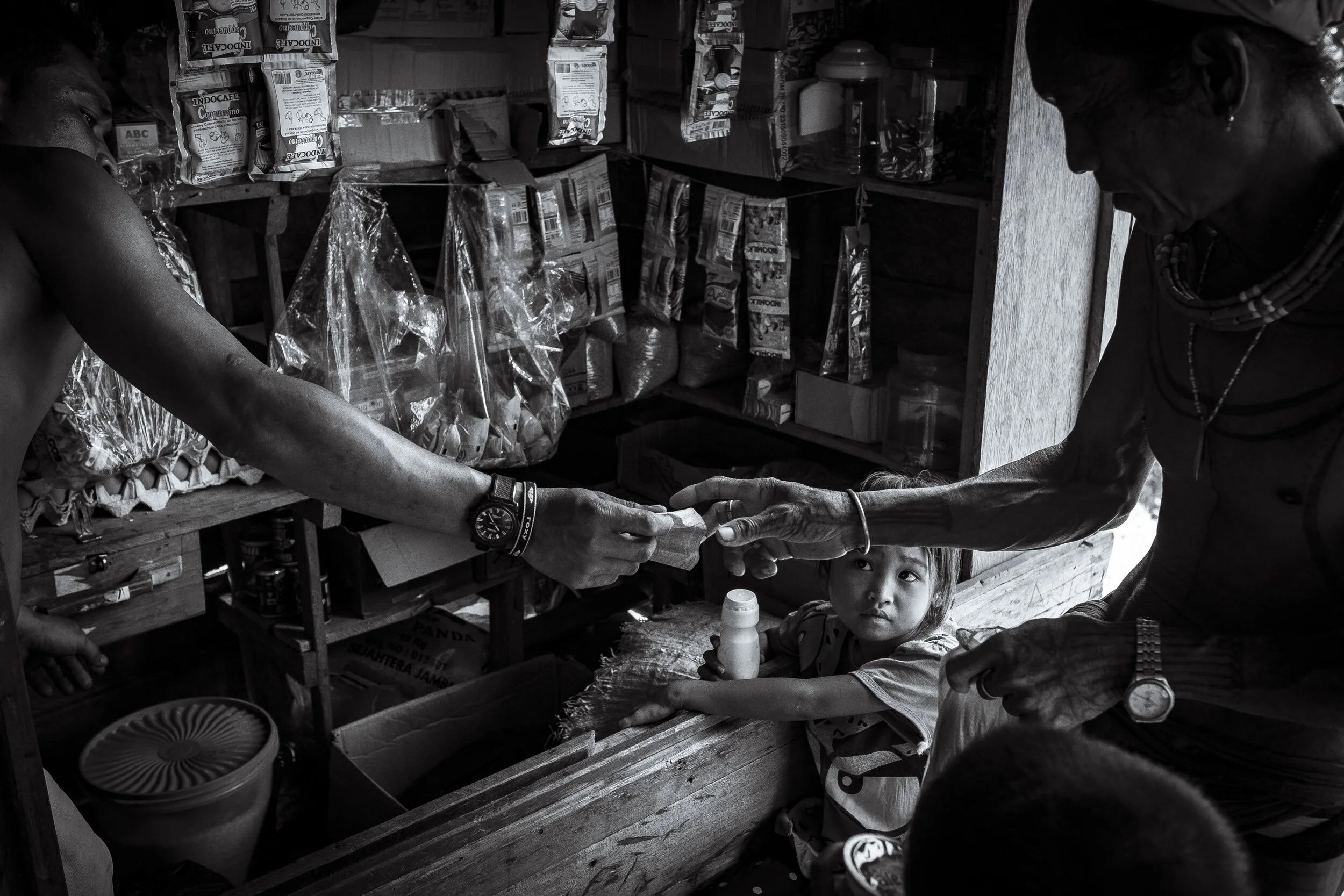
Ukan watches on as Masit Dere pays for a treat in the small shop in Matatonan. Further adding to the worrying trend towards modern societal systems, the small shop only sells products that are high in sugar and additives that the Mentawai have not yet grown accustomed too. As employment is limited in these purpose built villages the opportunity to buy and sell goods from the outside world is seen as a show of wealth yet further adds to the disconnect from the traditional and sustainable way of life.
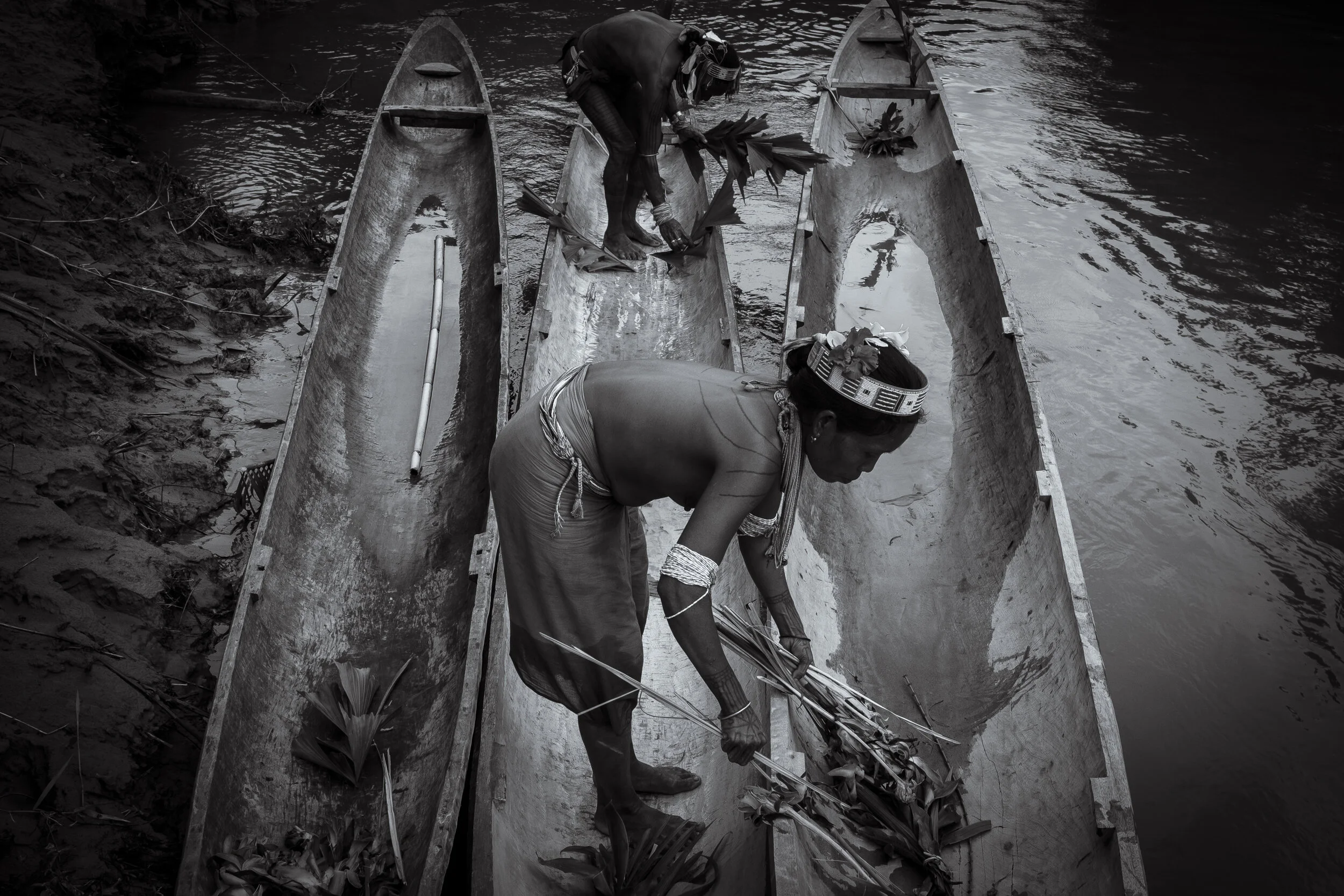
Masit Dere's wife Godai Manai blesses the new boat with the articles of the jungle collected by her husband a day earlier. The duty of the Sikerei wife is not only to tend to the children and the affairs of the home, but also to actively take part in ceremonies with the Sikerei.
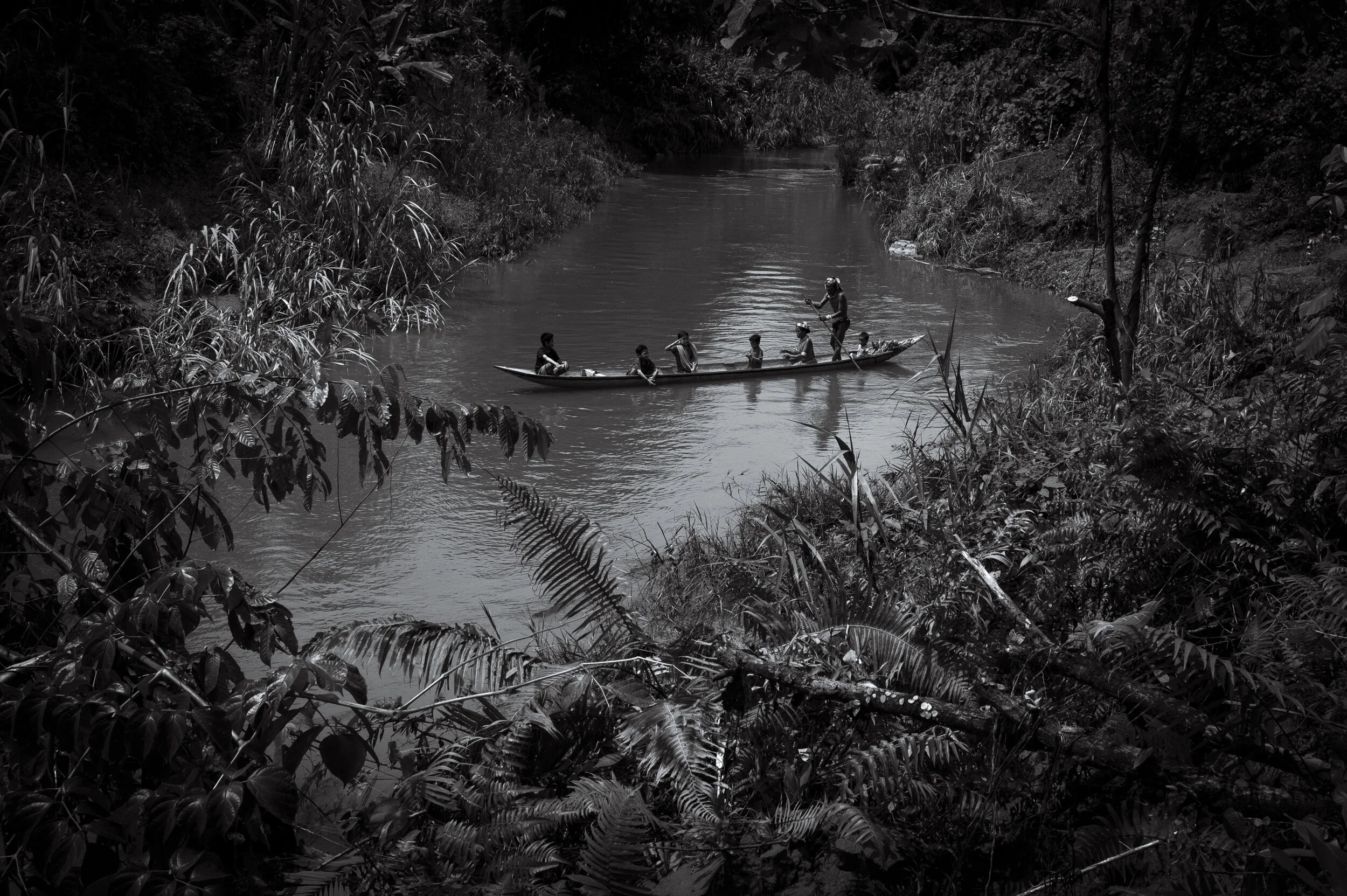
Masit Dere shunts the family canoe or pom-pom, down river towards Matatonan to take the youngest children to school and to talk to the local area official about getting paperwork so he can build on his land, legally. Traditionally the Mentawai Sikerei would build their Uma without paperwork but with the growing eco-tourism market taking a foothold in the area some see it as a way to modernise and make cash money. Something that legal paperwork is necessary for.
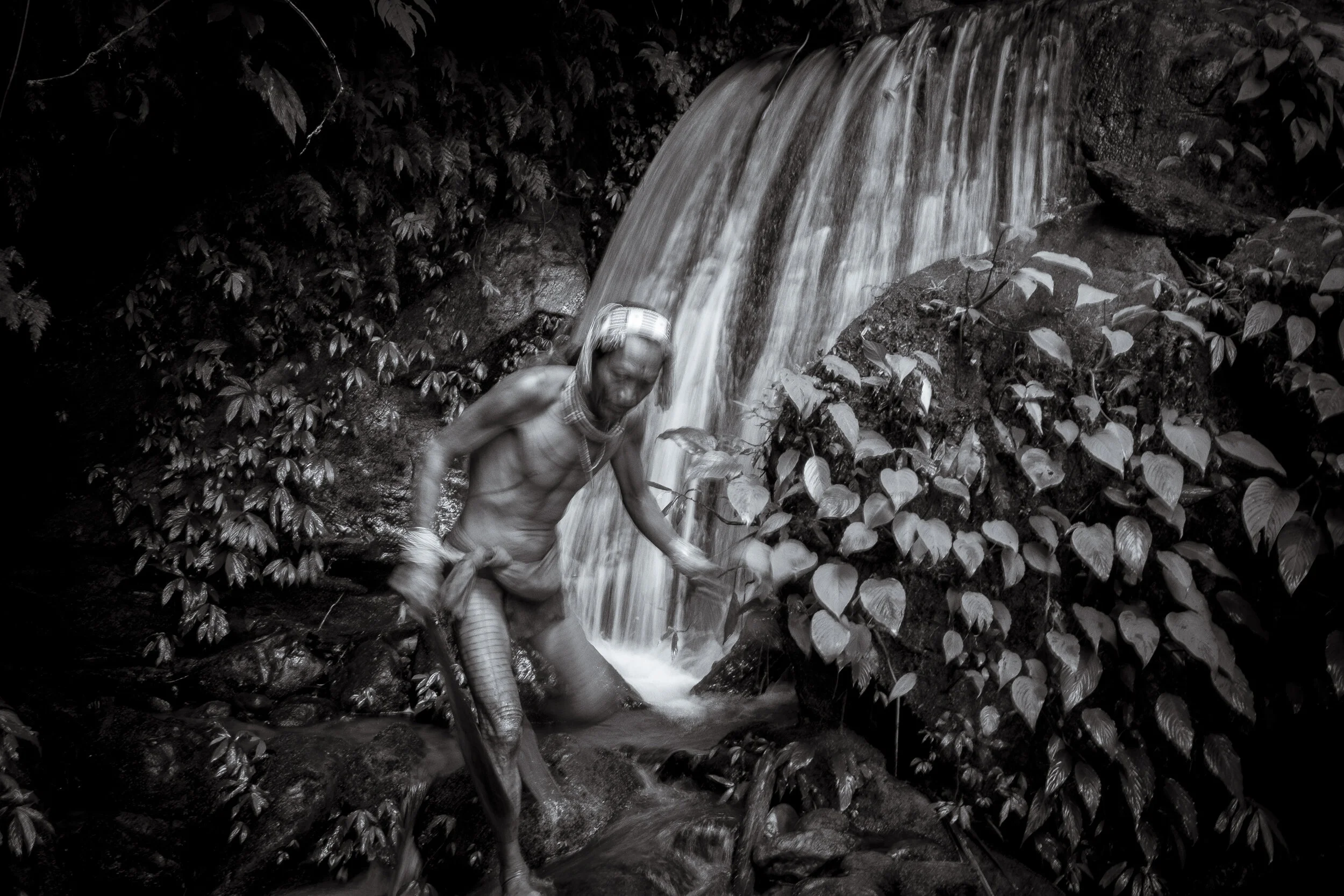
The Sikerei have a deep knowledge of the jungle and the resources it can provide. As the regions Medicine men they are sought after by locals with health issues and expected to treat them to a full recovery. With the onset of modernity comes with it new and unseen ailments, some of which are untreatable by forest medicine, ultimately having an adverse effect on the status of the traditional Sikerei.
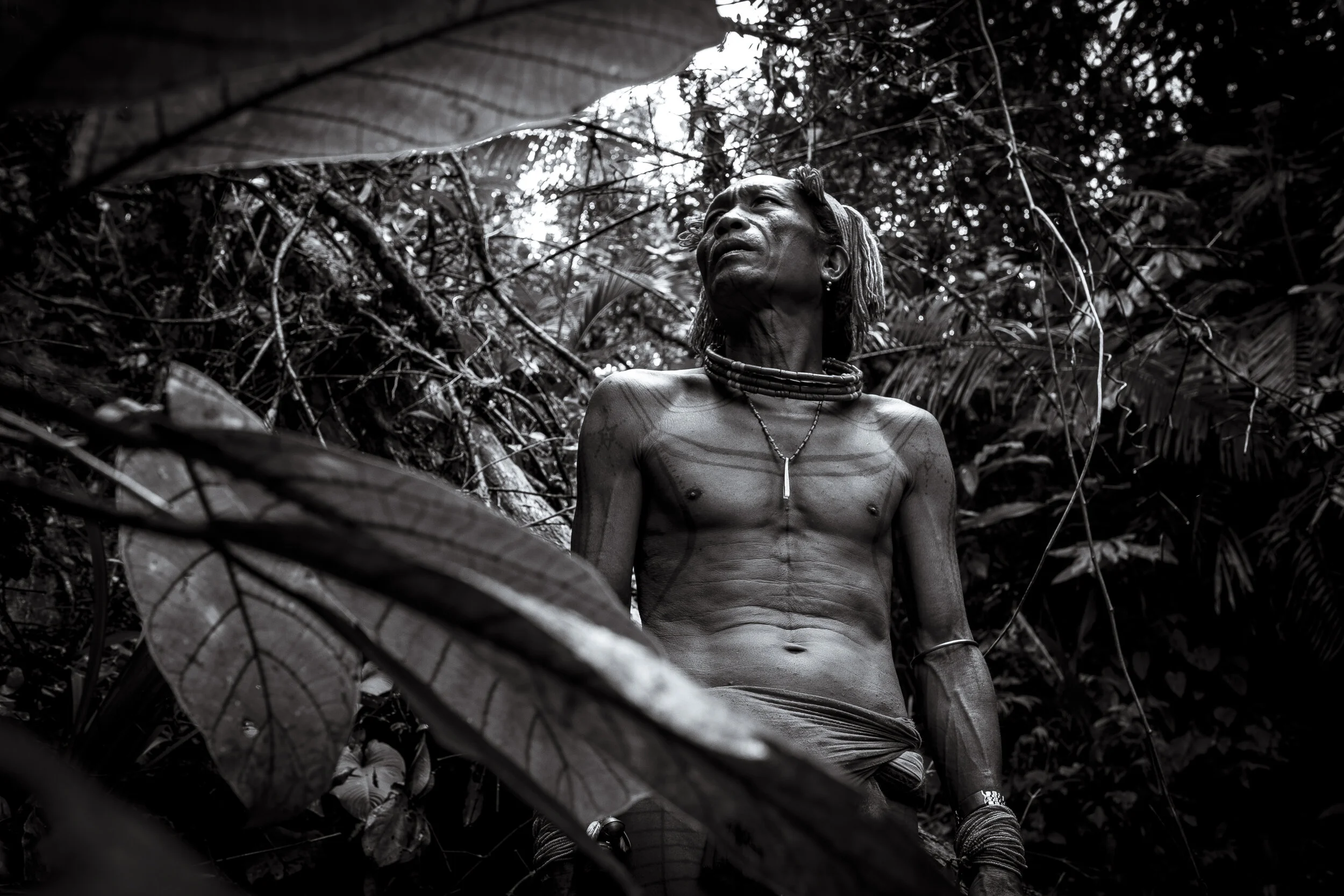
Siberut Island, Mentawai, Indonesia. Aman Masit Dere, is a medicine man or Sikerei of the indigenous tribal community that inhabit the inland jungles and mountains of the Mentawai islands west of Sumatra, Indonesia. His leathery skin is covered in tattoos and his lean muscular physique is emblematic of an uncompromising jungle life. Until now he has managed to reject modern influence and instead continues to capitalize on an in-depth knowledge of the jungles foods, medicines and building resources.
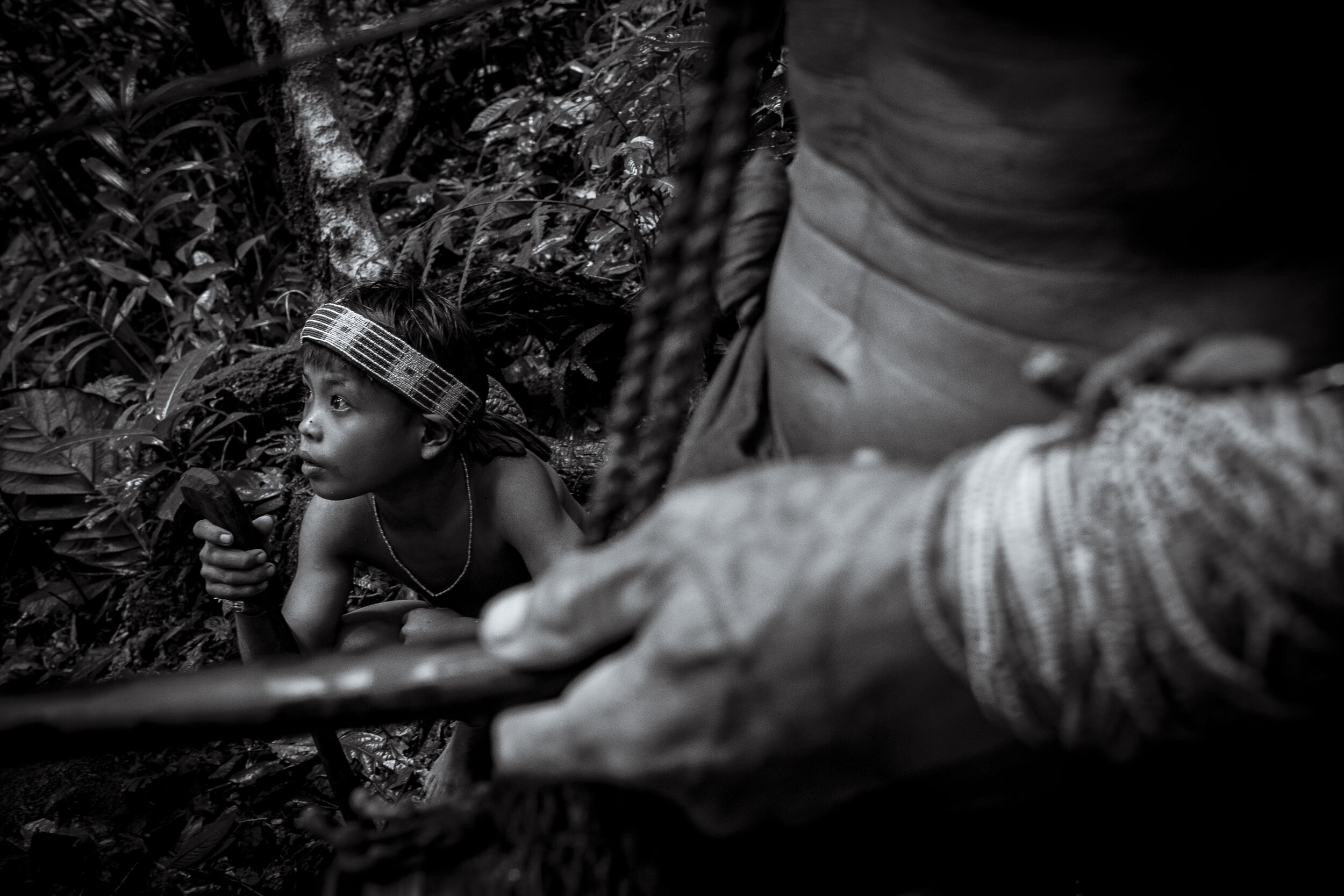
Nine year old Jumer listens and observes the actions of his grandfather Masit Dere whilst hunting and location scouting in the jungled region of Sarareiket. Like those before him, he learns all he can and all the Mentawai have ever needed to know from observing his elders and listening to the lessons of the Sikerei. Jumer will not be educated at a traditional school like some of his brothers and sisters.

Aman Masit Dere soothes his 12 month old daughter Renti from an unknown illness with a lullaby. Traditional methods using natural medicine inherited from ancestors are preferred by the Sikerei, meaning all ailments are treated gravely. Infant death is often a sudden and common event creating anxiety amongst the household.
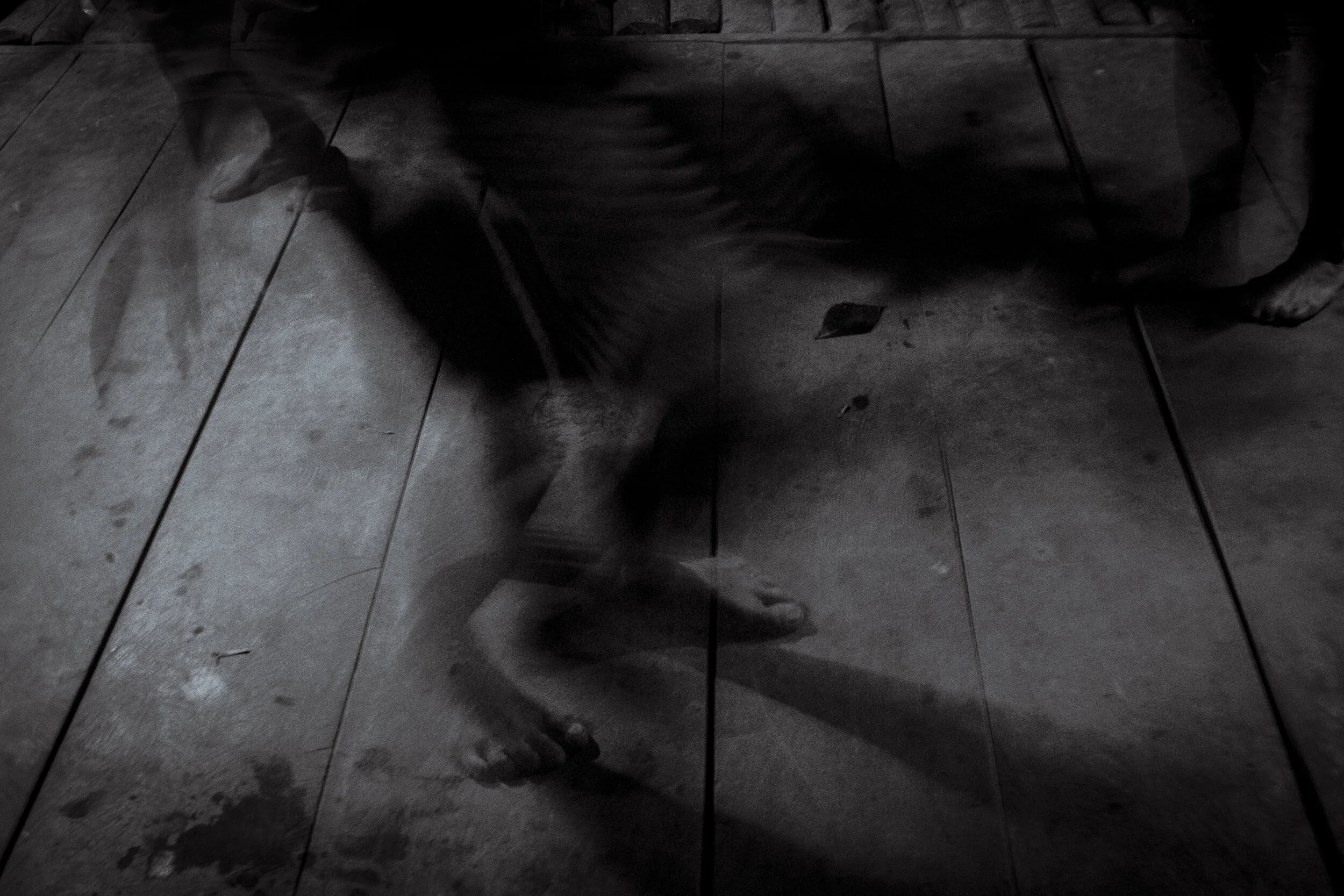
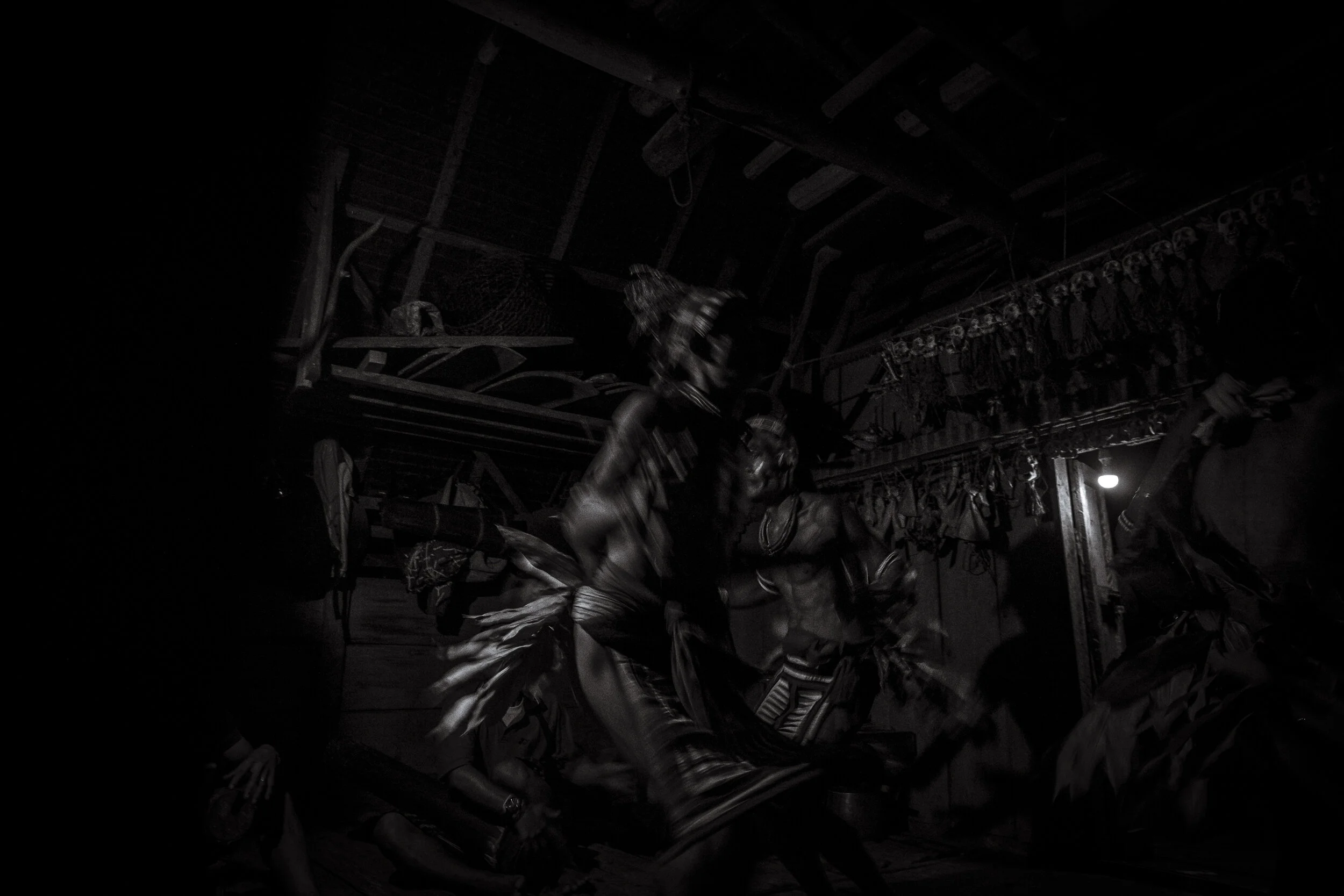
At a 24 hour long ceremony, Aman Tawqi Kunen and Aman Dussa Kunen dance to welcome the spirits into Aman Masit Dere's Uma (house). As animists and the conduit between their people and the afterlife, the Sikerei dance until they can no longer stand, showing reverence to the spirits. The performance will end dramatically with one feigning death to appease those in the afterlife.
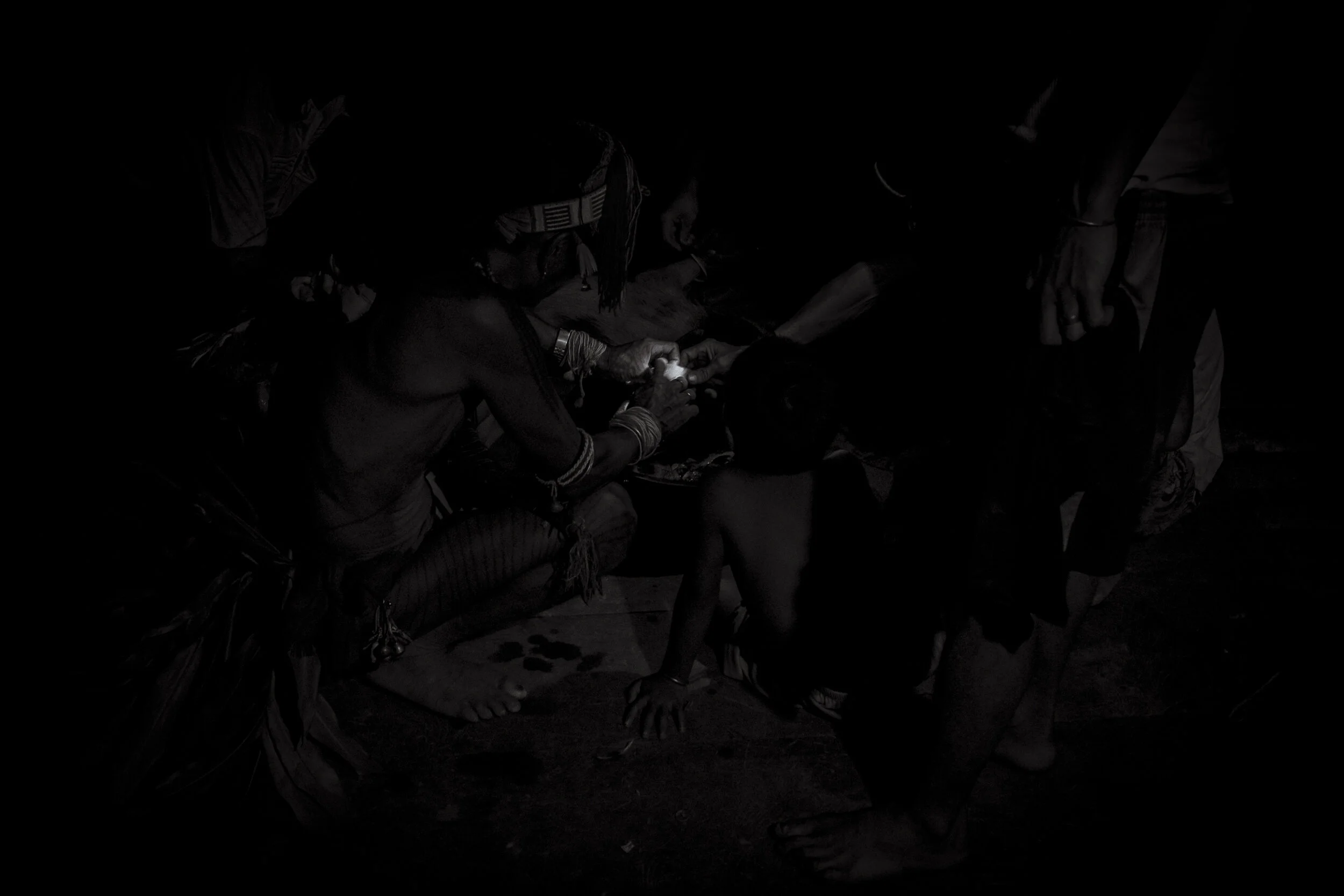
A pigs heart is inspected by the Sikerei and their sons, after it was sacrificed to appease the spirits and provide food for those at a ceremony. The Sikerei will read the veins in the heart to determine the immediate fate of their clan in the future.
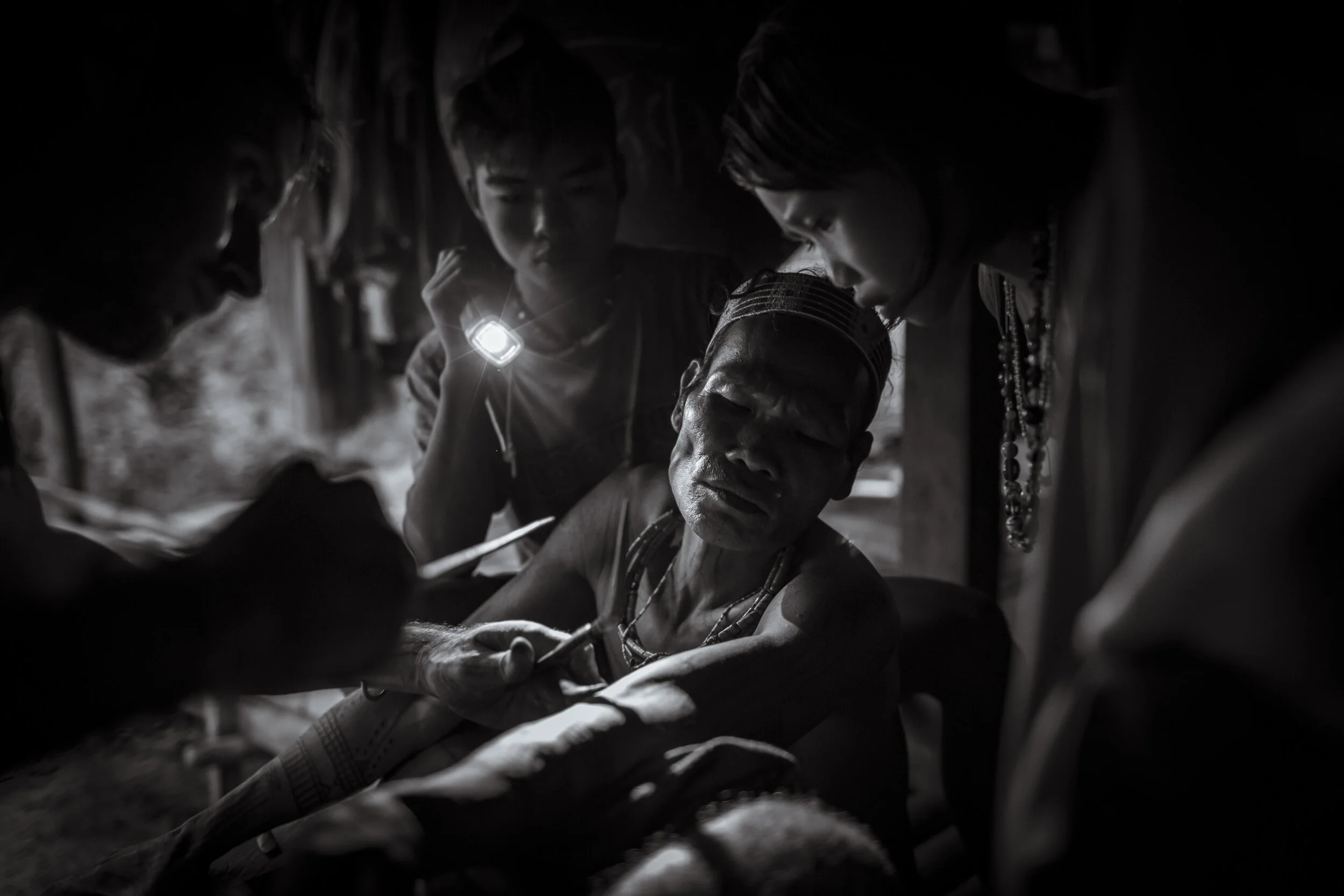
Aman Dussa Kunen is watched by local children as he is tattooed under torch light using the traditional Mentawai hand-tapping technique. A practise that is becoming less common as their culture fades, the identity shaping markings, or Titi, are worryingly seen by younger generations as a curiosity rather than a symbol of cultural importance.
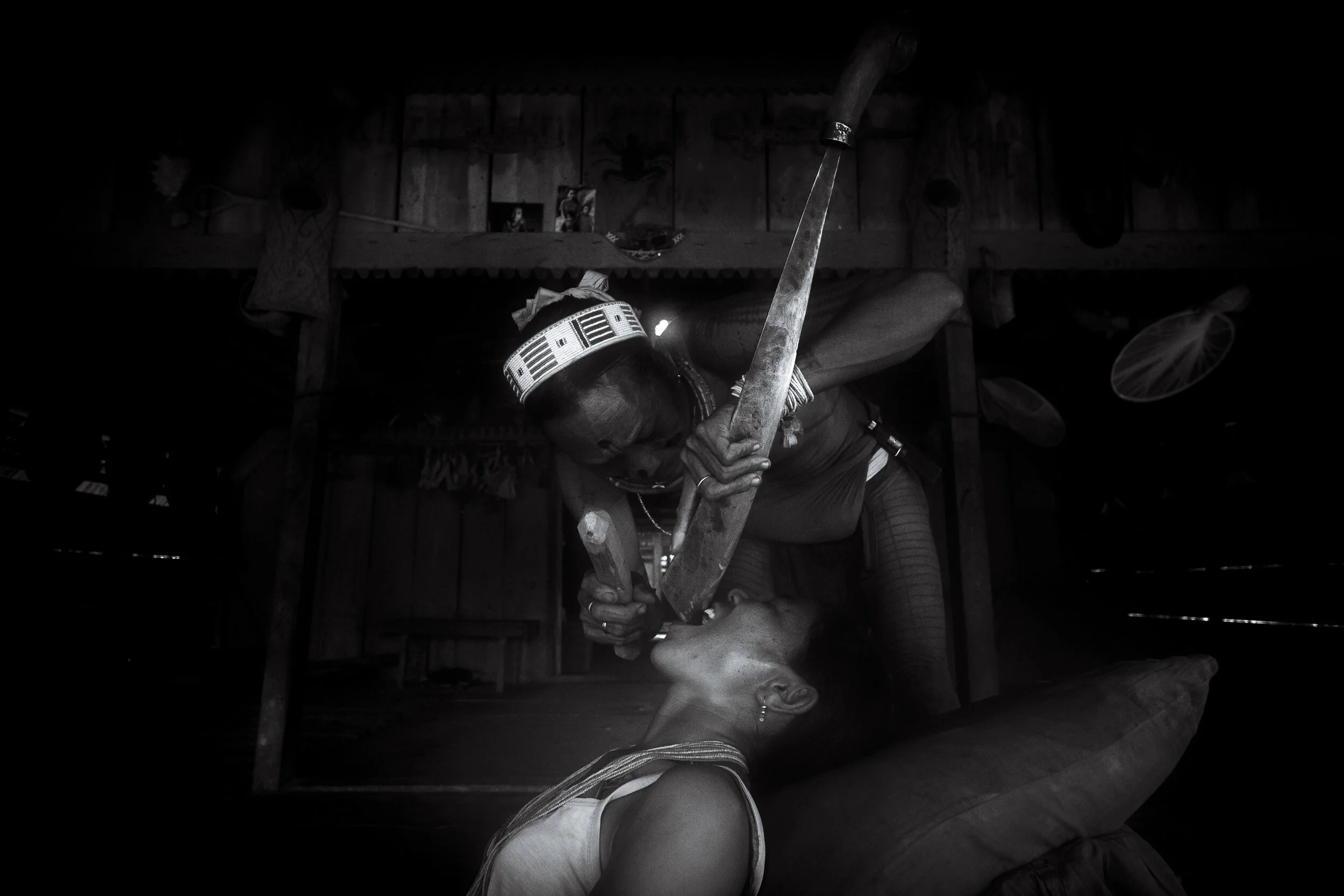
Masit Dere performs a tooth sharpening ritual. The procedure is performed less and less as Mentawai women continually look to the western world for what is deemed to be 'beauty'. The ritual has different purposes dependent upon which region it is performed. Some say it is a practical tool so that a new mother can break down solid foods to feed her babies with greater ease. Others, like in the Sarereiket region (pictured here) say it is a beautification technique.

A healthy Renti (l) stares outside the Uma as Ukan and Pandin play after school. As Masit Dere's youngest son, Pandin (r) is the next in line to be Sikerei due to Kacau's (Masit Dere's eldest son) move to Matatonan. Pandin does not share the same love of Arat Sabulangan as Jumer does and as he attends the village school it would seem that Masit Dere is the last in his lineage to be Sikerei. “The future of Mentawai culture survives with our children and our role is to teach them this knowledge.” says Masit Dere.
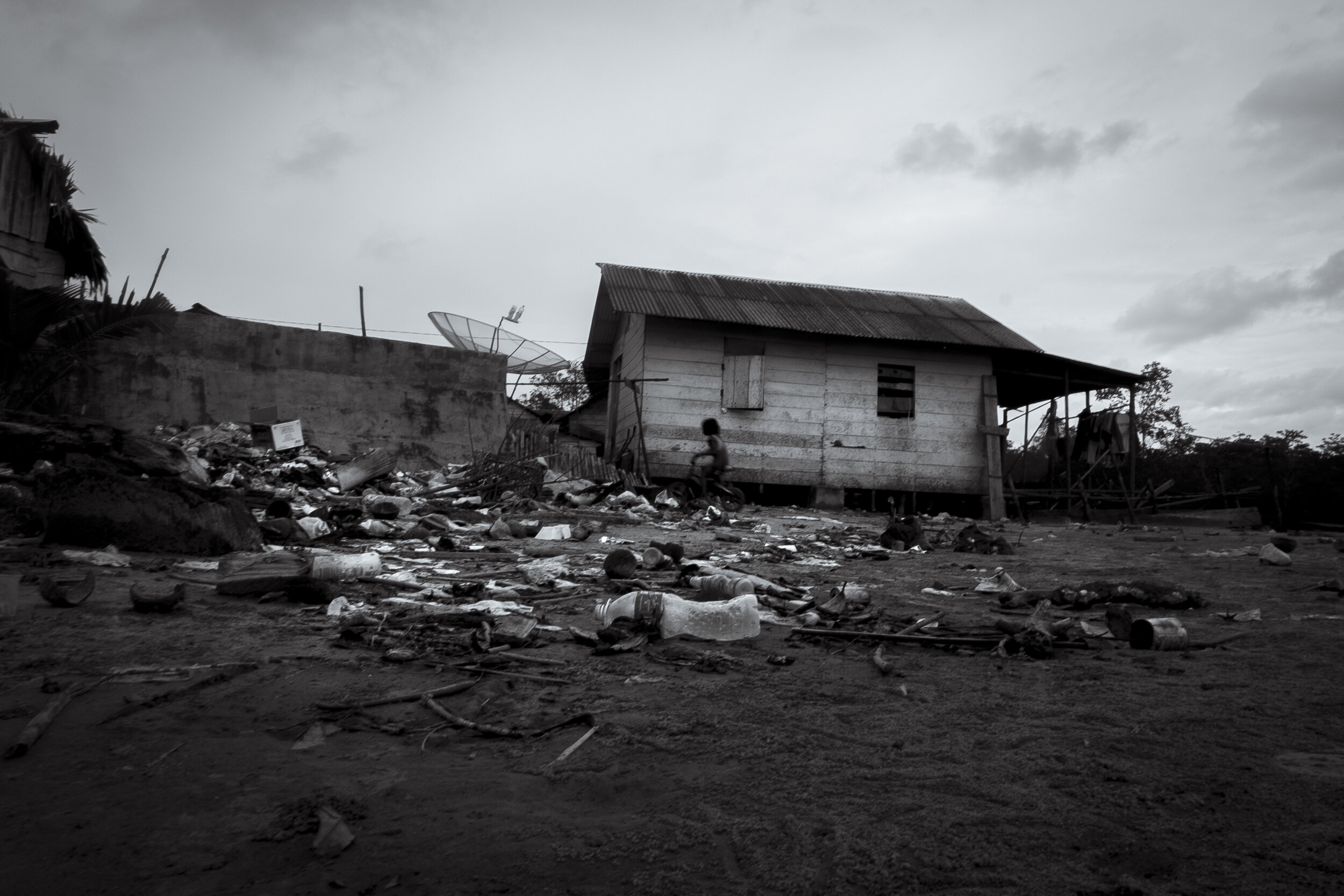
Muara Port Siberut is the only town of note on the main island of Siberut, and also a drop off point for surfers looking to ride the world-famous surf breaks surrounding the islands. A seeming oasis for young Mentawai with dreams of working on the chartered boats and surf resorts, the settlement town is in fact a mirage, with little to no opportunity for employment and a lack of infrastructure to sustain growth. The residents are Mentawai but the culture here is non-existent, extinct.

















